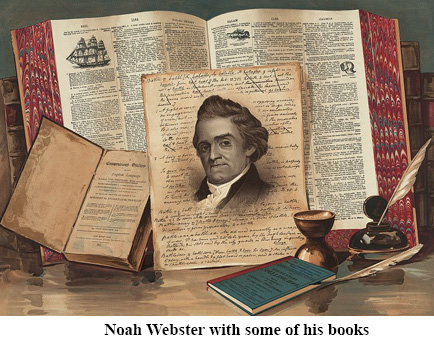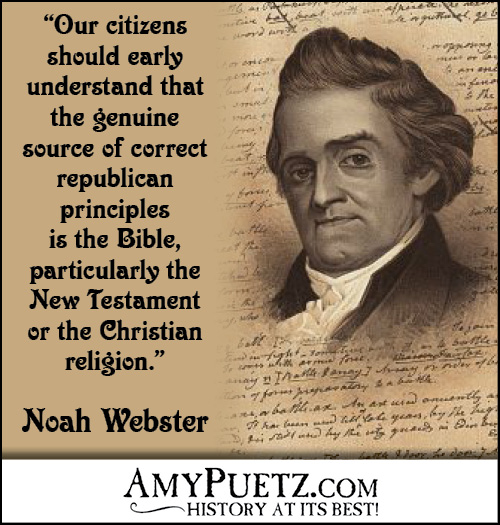Preface from History of the United States
Hands on History by Golden Prairie Press
Noah Webster was one of the leading writers for educational books in the early 1800s. His dictionary published in 1828 is still in use today. Below is an excerpt from his preface for a History of the United States.
Amy Puetz Fox

Importance of the Bible
It is the sincere desire of the writer that our citizens should early understand that the genuine source of correct republican principles is the Bible, particularly the New Testament or the Christian religion.
Education Teaches Moral and Social Duties
Republican government loses half of its value, where the moral and social duties are imperfectly understood, or negligently practiced. To exterminate our popular vices is a work of far more importance to the character and happiness of our citizens, than any other improvements in our system of education.
When History Should be Taught
An impartial history cannot be published during the lives of the principal persons concerned in the transactions related, or of their near connections, without being exposed to the charge of undue flattery or censure; and unless history is impartial, it misleads the student, and frustrates its proper object.
How to Teach a History Book
If this history book should be read in schools, I would not recommend that the pupil be required to commit entire paragraphs to memory; but that he should abridge them in writing, extracting only the principal facts, and reducing them within the compass of a few lines, which may be easily remembered and recited.
When the book is used only for learning to read and understand what is read, I would recommend that the pupil should have time to study his lesson before he reads to the teacher, and that he should be required to consult a dictionary for the explanation of words which he does not understand. In this case, as words often have different senses, he should be instructed to find the proper signification of the word in the paragraph in which it is used. This mode of study would accustom the pupil to exercise his mind in discriminating between the various applications of terms, and would be most effective in impressing upon his memory their different significations.
The practice of writing books for youth in the household language of children, is proper and useful for those who are learning to read; but as soon as words of common use become familiar to the eye, children should leave the style of puerility [childishness], and read only, or chiefly, a more elevated language; or that which is used by well educated people in adult years. The habit of using the peculiar phrases of children and vulgarisms should be counteracted as early in life as is practicable; otherwise such phrases will never be lost, but will often infect the language of polite conversation, in every period of future life. The practice of reducing language to the capacities of children, instead of elevating their understandings to the style of elegance, may be carried to an extent not warranted by just views of improvement.
History should be read with maps, which are to be found in all our bookstores and in most of our schools.
